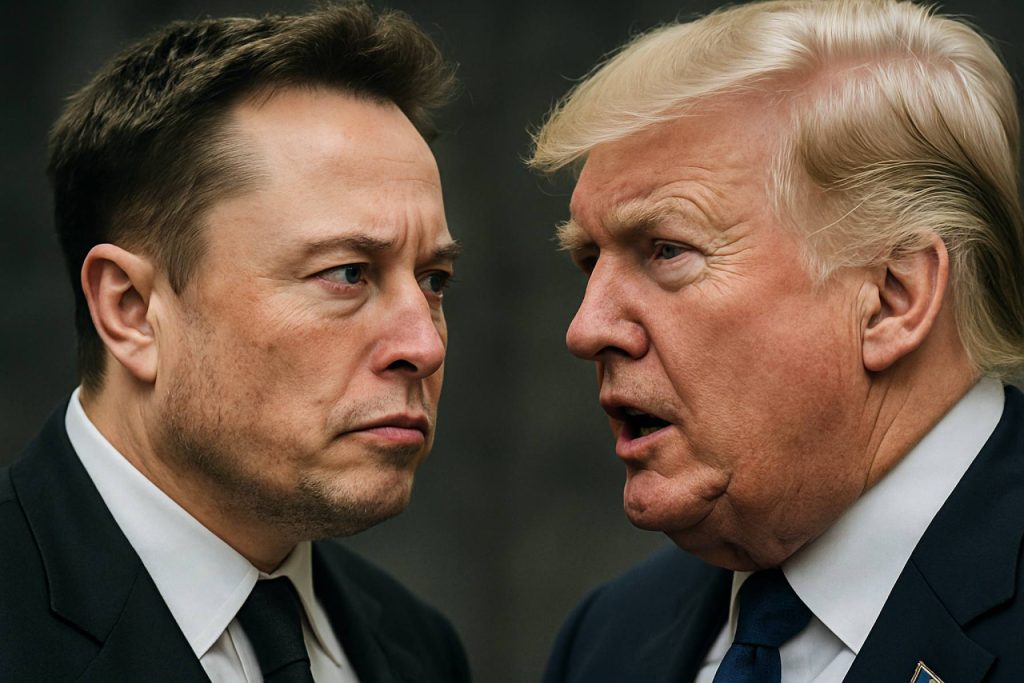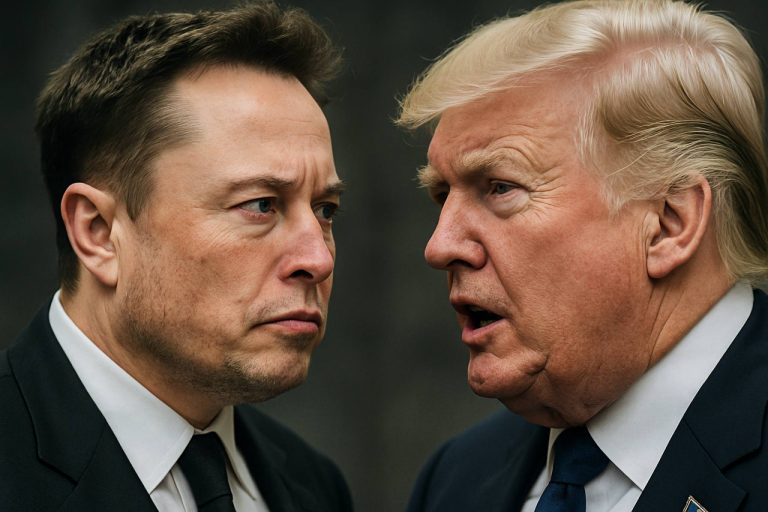
Inside the Musk-Trump Showdown: Could a Political Spat Bring Down America’s Space Monopoly?
Elon Musk and Donald Trump’s epic clash threatens billions in government contracts, national security, and the future of space tech.
- 90% of all pounds sent into orbit in late 2023 were launched by SpaceX
- ~66% of global satellites managed by Starlink, Musk’s satellite firm
- $22B+ in direct federal funding granted to SpaceX since its founding
- 1 human-rated rocket to the ISS—owned by SpaceX, controlled by Musk
A high-stakes feud has erupted between two titans of power: Elon Musk, the richest man on Earth, and Donald Trump, 2025’s most controversial political heavyweight. While their bitter war of words has captured headlines, the fallout threatens to upend U.S. space dominance, disrupt critical communications, and expose startling cracks in America’s monopoly-busting playbook.
The drama isn’t just personal. Trump hinted he might yank government contracts from Musk and SpaceX, which currently underpins America’s space access—and even astronauts’ rides to the International Space Station. Musk, in turn, shot back with menacing remarks about jeopardizing U.S. interests, raising the specter of lost communication links and compromised missions.
At the center: SpaceX’s near-total grip on U.S. launches and Starlink’s control of global satellite internet. With the political temperature rising, some advisors are calling for an unprecedented government takeover. And all of it reveals just how fragile America’s reliance on billionaire-run “public” infrastructure really is.
NASA | Federal Trade Commission | SpaceX | Starlink
Q: Why Does Musk’s Monopoly Matter So Much?
SpaceX isn’t just a private space company anymore—it’s an essential national utility. In 2023, SpaceX launched almost every single payload the U.S. put into orbit. The company’s reusable rockets are the only way astronauts and cargo reach the ISS. Meanwhile, Starlink supplies vital encrypted satellite communications not just to rural communities, but to the Pentagon and even war-torn Ukraine.
Musk’s power to flip a switch and restrict Starlink for geopolitical leverage is no longer theoretical; he’s already controlled Ukraine’s access in wartime. Musk’s “sovereign-level” influence terrifies governments worldwide.
Q: What’s at Stake If Trump Follows Through on His Threats?
If Trump acts on threats to cut Musk’s contracts—or uses emergency laws to seize SpaceX under the Defense Production Act—the immediate impact could cripple America’s space operations, degrade encrypted communication, and send shockwaves through the global economy.
With SpaceX responsible for nearly all U.S. space launches, there’s no ready backup. Boeing and Blue Origin lag miles behind. A forced breakup or government intervention could slow the burgeoning satellite industry—and hand critical advantages to rival nations.
How Did SpaceX Become a Space Monopolist in the First Place?
SpaceX’s rise isn’t just about rocket science. The company’s aggressive pricing—sometimes below cost—and “right of first refusal” contract clauses boxed out rivals. Industry insiders allege that SpaceX undercuts competition and self-prefers when launching its own Starlink satellites, stacking the deck in its favor.
Some in the space startup ecosystem even claim Musk’s connections sabotage funding for would-be competitors. Tight regulatory barriers and the immense capital needed to launch rockets keep challengers out, entrenching SpaceX’s dominance further.
Could the U.S. Really Take Over SpaceX?
Trump’s confidant Steve Bannon floated the idea: Use the Defense Production Act to nationalize SpaceX, treating it as critical infrastructure. That power exists, but it’s rarely invoked at this scale.
While such a move would have seismic legal and economic consequences, it echoes growing calls for Washington to wield antitrust powers more aggressively, including a potential Federal Trade Commission investigation into SpaceX’s business practices.
What About The Bigger Picture—And What Should Happen Now?
This isn’t just about two egos going head-to-head on social media. At stake: the very notion of rule of law versus the whims of billionaires in a modern oligarchy. The past few years have shown how officials bend over backwards to serve Musk’s interests, from regulatory rollbacks to massive subsidies—often without a coherent policy vision.
Treating SpaceX and Starlink as public utilities—subject to oversight, competition, and transparent rules—could be the only way to ensure U.S. security and advance the national interest.
Don’t Let America’s Space Future Be Held Hostage! Here’s What Needs to Happen:
- Push for immediate Congressional review of monopoly practices in the space and satellite industry
- Empower the FTC and DOJ to launch antitrust investigations—urgently
- Develop national backup plans for space access, with funding for new competitors
- Insist on clear legal frameworks to govern “public utility” mega-corporations
- Hold political leaders accountable: demand consistent rules, not whim-driven power plays
For more on breaking monopolies, space innovation, and the future of public power, stay tuned—for this story is just beginning.



